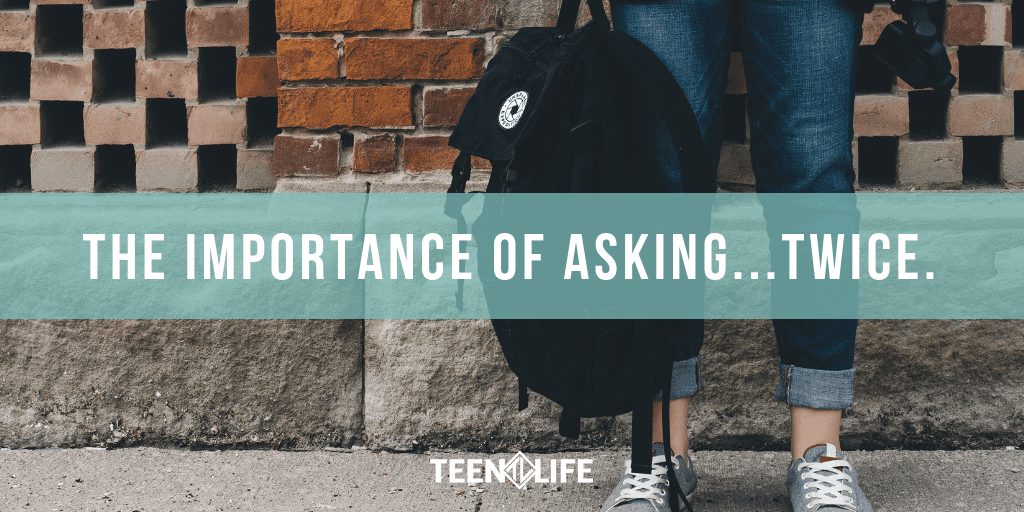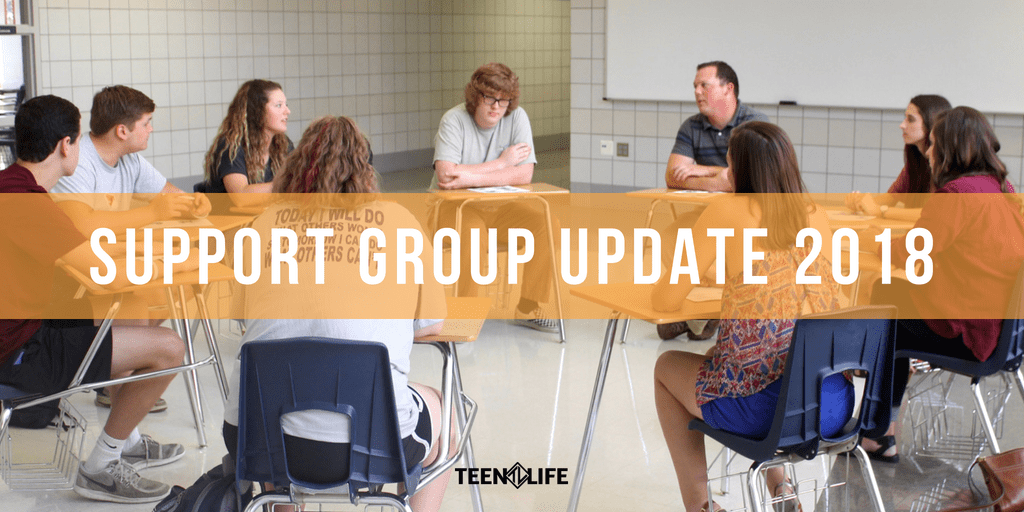
The Importance of Asking…Twice.
This post was written by one of our facilitators, Sarah Brooks. Sarah is a blogger, mom of 3 boys and social media expert! She has spoken across the country at various groups, churches, and schools about social media (the good, the bad, and the confusing), most of which stemmed from a post she wrote called Parents: A Word About Instagram. Sarah currently facilitates a High School Support Group in Fort Worth ISD.
———
I had a mild panic attack the morning I was set to lead my first Teen Life group. When I started looking over lesson one, I was shocked by how personal the discussion questions were. There was no building rapport, no easing in to sensitive topics with these people. No – right out of the gate, they expect me to walk into a group of teenagers I’ve never seen before, teenagers who are presumably hurting and/or experiencing significant life crisis, and ask questions like,
“On a scale from 1-10, how do you feel about yourself?”
and
“How much do you feel others care about you?”
For real??
I’m a wealthy suburban housewife facilitating a group in one of the lowest performing, lowest income high schools in our area. I knew these teens would be skeptical of me before I even said a word, but after reading lesson one I was afraid they’d actually be mad at such a blatant invasion of privacy.
None of it made sense….except that it worked. All the questions. None unanswered.
How? How is that possible?
I think the answer is in something I heard from a different group of teenagers a few weeks ago.
———
During a small group discussion at a church student conference last month, a group of high schoolers and I were talking about the topic of friendship. What it looks like, the difference between online connection and in-person community, etc.
I asked them what traits they looked for in a friend.
“Authenticity.” one said. “No judgment.” said another.
Then one girl said, “I want a friend who will ask me how I’m doing….twice. Once for the fake answer, then again for the real answer. I want a friend who will wait and press for the real answer.”
(*pause to slow clap for that answer*)
I knew exactlywhat she was talking about, because over the past several months I’ve been conducting a social experiment I find hysterical that my husband is ever-so-slightly embarrassed by.
It goes like this: we’re eating a restaurant and the waiter comes up and asks one of a few standard questions, either “How are you tonight?” or “How was your food?”
Something along those lines.
My husband answers “Great!” at the same time I answer a loud “MEHHHH” with a noncommittal shrug. Sometimes if I’m feeling extra obnoxious, I say, “Not great!”
I’ve done this countless times in countless restaurants with countless waitstaff and not a single personhas a) heard me or b) asked a follow up question.
Nobody hears me because nobody is actually listening.
I mean, it’s dinner at a restaurant. Who cares, right? I don’t need to be best friends with Olive Garden James.
But I’m beginning to realize we do this a lot in regular life, too.
We ask all the right questions – because we’re interested and polite, of course – but we don’t actually listen for the answers.
How many times have you had an entire conversation with someone in which you didn’t hear a word they said?
You say, “Hey! How are you?” and as soon as the person starts answering your mind bounces to your work inbox and how you need to pick up the dry cleaning before they close and how your kid has that weird science project with the apples and – oh! he’s finished talking I should ask another question…
We live in a culture with really long to do lists and really cheap communication. We get so busy we forget to actually stop and listen.
———
And this exactly why my Teen Life groups work. This is why those first students didn’t storm out on day one.
The curriculum we use provides practical, helpful tools for teenagers about how to live life better. It’s incredible.
But more than that, these students know that in a world stuffed so full of “connections” we’ve somehow disconnected ourselves from real conversation, they have a place once a week where they can come and be heard.
Even better, they’re heard by an adult who isn’t paid to talk to them, who didn’t give birth to them, and who apparently has no better hobby than to drive across town every Thursday to listen to what they have to say, simply because she – and the rest of the Teen Life team – believes in them.
We stop and we listen. (Curiously. We listen curiously.)
In today’s society, with today’s teens, that can make all the difference in the world.

